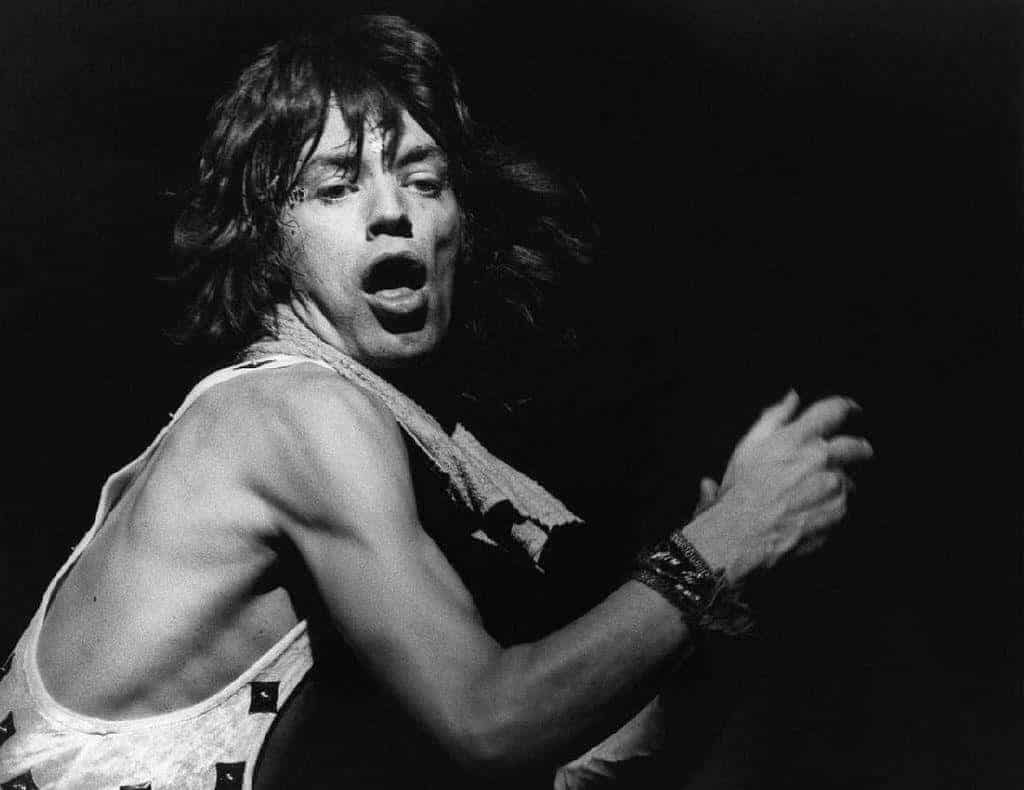The 10 best Mick Jagger songs of all time

Mick Jagger is a British singer, songwriter, actor and producer, best known as the lead singer and co-founder of The Rolling Stones, one of the most iconic and influential rock bands in history. Born on 26 July 1943 in Dartford, Kent, England, Jagger has been a central figure in popular music for over sixty years.
As frontman of the Rolling Stones, Mick Jagger’s charismatic stage presence, distinctive voice and dynamic performances made him a rock’n’roll legend. The band’s discography includes numerous classic hits such as “Satisfaction,” “Paint It Black,” “Sympathy for the Devil” and “Jumpin’ Jack Flash,” among many others that cemented their status as pioneers of rock music.
In addition to his work with the Rolling Stones, Mick Jagger has pursued a successful solo career, releasing albums and singles that demonstrate his versatility as an artist. He has also collaborated with various musicians across different genres, further expanding his musical influence and legacy.
In addition to his music career, Mick Jagger has also tried his hand at acting, appearing in films such as *Performance* (1970), *Ned Kelly* (1970) and *The Man from Elysian Fields* (2001). He is also known for his influence on fashion and cultural trends, embodying the spirit of rock’n’roll rebellion and influencing generations of musicians and fans alike.
Mick Jagger’s impact on pop culture extends far beyond music, making him a cultural icon whose influence resonates in music, fashion and entertainment to this day.
1. Old habits are hard to break
“Old Habits Die Hard” is a song by Mick Jagger and Dave Stewart, released in 2004. The song was featured on the soundtrack of the film *Alfie* starring Jude Law. It won the Golden Globe Award for Best Original Song in 2005.
Lyrically, “Old Habits Die Hard” reflects on the challenges that come with breaking away from familiar routines and behaviors, especially those that have become deeply ingrained over time. The lyrics address themes of resilience, self-reflection, and the struggle to change despite past experiences and habits.
Musically, the song features Mick Jagger’s distinctive vocals, accompanied by Dave Stewart’s bluesy guitar riffs and a soulful arrangement. The song’s melancholic tone and thoughtful lyrics harmonize with themes explored in the film *Alfie*, adding emotional depth and introspection to the narrative.
“Old Habits Die Hard” received critical acclaim for its moving lyrics, powerful vocals and musical composition. The song’s success showcased Mick Jagger’s versatility as an artist beyond his work with the Rolling Stones and cemented his reputation as a respected singer-songwriter.
2. All night on cable
“Wired All Night” is a song by Mick Jagger, released in 1987 on his second solo album, Primitive Cool. The track is known for its bluesy-rock sound and Jagger’s distinctive vocals. Lyrically, “Wired All Night” deals with themes of obsession, desire, and the nighttime world of excess and debauchery. The song features a raucous, guitar-led melody and a driving rhythm characteristic of Jagger’s solo work in the 1980s. “Wired All Night” reflects Jagger’s exploration of different musical styles and his continued relevance as a solo artist outside of his work with the Rolling Stones.
3. Happiness in love
“Lucky in Love” is a song by Mick Jagger, released as a single from his 1985 solo debut album, She’s the Boss. The album was Jagger’s first solo project outside of the Rolling Stones and explored a mix of rock, pop and dance influences.
Lyrically, “Lucky in Love” celebrates the feeling of being lucky and successful in romantic relationships. The lyrics express a feeling of joy and contentment in finding love and companionship, with Jagger’s vocals conveying a playful and happy mood throughout the song.
Musically, “Lucky in Love” features a lively and energetic pop-rock arrangement, characterized by catchy guitar riffs, fast rhythms, and Jagger’s distinctive vocals. The song’s production reflects the pop music trends of the 1980s, using synthesizers and a sophisticated sound that appealed to contemporary audiences.
Although “She’s the Boss” received mixed reviews from critics, “Lucky in Love” and its accompanying music video were moderately successful on the charts and in pop culture. Mick Jagger’s solo efforts allowed him to explore different musical styles and showcase his versatility as an artist outside of the Rolling Stones, further cementing his status as a rock and roll icon.
4. Sweet thing
“Sweet Thing” is a song by Mick Jagger from his 1985 debut solo album, She’s the Boss. The track is known for its upbeat and funky rock sound and showcases Jagger’s energetic vocals and charismatic stage presence. Lyrically, “Sweet Thing” deals with themes of attraction, seduction and the thrill of romance. The song has a catchy chorus, rhythmic guitar riffs and a lively rhythm section that reflects Jagger’s ability to blend rock with elements of pop and dance music. “Sweet Thing” was well received commercially and helped Jagger establish himself as a successful solo artist alongside his work with the Rolling Stones.
5. Party doll
“Party Doll” is a song by Mick Jagger, released in 1987 as a single from his second solo album, Primitive Cool. Known for its upbeat and energetic rock sound, the track features Jagger’s distinctive vocals and a lively rhythm section. Lyrically, “Party Doll” deals with themes of hedonism, nightlife, and the allure of parties and romance. The song’s catchy melody and infectious chorus contributed to its popularity as a danceable and fun rock song. “Party Doll” demonstrated Mick Jagger’s continued relevance as a solo artist in the 1980s, showcasing his ability to captivate audiences with his dynamic performances and infectious energy.
6. Lonely at the top
“Lonely at the Top” is a song by Mick Jagger from his 1985 debut solo album, She’s the Boss. The track deals with themes of fame, success, and the challenges that come with being in the spotlight. Lyrically, Jagger deals with the loneliness and isolation that can come with fame, despite the outward appearance of glamour and success. Musically, “Lonely at the Top” features a mix of rock and pop elements, with Jagger’s charismatic vocals leading the song. The track highlights Jagger’s ability to delve into personal introspection while maintaining his distinctive rock and roll style.
7. God gave me everything
“God Gave Me Everything” is a song by Mick Jagger feat. Lenny Kravitz, released in 2001. It was included on Mick Jagger’s solo album *Goddess in the Doorway*.
Lyrically, “God Gave Me Everything” is about gratitude and the blessings of life. The lyrics express a sense of appreciation for the gifts and opportunities one is given, with an emphasis on personal fulfillment and spiritual reflection. Mick Jagger’s vocals convey a sense of introspection and gratitude, while the collaboration with Lenny Kravitz adds depth and texture to the song’s dynamics.
Musically, “God Gave Me Everything” combines rock, pop and electronic elements with catchy guitar riffs, energetic rhythms and sophisticated production. The song’s fast tempo and infectious melody underline its positive and uplifting message and make it a standout track on *Goddess in the Doorway*.
The collaboration between Mick Jagger and Lenny Kravitz on “God Gave Me Everything” received positive reviews from both critics and fans. The song’s powerful vocals, captivating lyrics and energetic instrumentation demonstrate Mick Jagger’s continued relevance as a solo artist and his ability to evolve musically while staying true to his rock and roll roots.
8. Don’t tear me apart
“Don’t Tear Me Up” is a song by Mick Jagger from his third solo album, Wandering Spirit, released in 1993. The track is a soulful ballad that showcases Jagger’s introspective lyrics and emotional vocals. Lyrically, “Don’t Tear Me Up” deals with themes of vulnerability, heartbreak, and the complexity of relationships. The song features a soulful melody with bluesy-tinged guitar riffs and a gospel-inspired background vocal arrangement that adds depth and emotion to the track. “Don’t Tear Me Up” reflects Jagger’s mature songwriting and ability to tackle personal and emotional themes in his solo work.
9. Dancing in the street
“Dancing in the Street” is a classic song originally recorded by Martha and the Vandellas in 1964. It was written by Marvin Gaye, William “Mickey” Stevenson and Ivy Jo Hunter and produced by Stevenson. The song became a hit and the signature tune of the Motown record label.
Lyrically, “Dancing in the Street” celebrates the joy and liberation of dancing as a community activity. The lyrics describe various cities and regions where people dance in the streets, emphasizing unity, celebration, and the universal appeal of music and dance.
Musically, the song features a lively and upbeat rhythm, characterized by its infectious melody, prominent horns, and Martha Reeves’ powerful vocals. The energetic arrangement and catchy chorus contribute to the song’s enduring popularity and its status as a classic of the Motown sound.
Over the years, “Dancing in the Street” has been covered by various artists, including Mick Jagger and David Bowie, who released a popular duet version in 1985. Their rendition became a hit and remains one of the most famous covers of the song, blending rock and pop elements with the original Motown spirit.
10. Just One More Night
“Just Another Night” is a song by Mick Jagger from his 1985 debut solo album, She’s the Boss. The track is a lively and upbeat rock song with elements of pop and dance music. Lyrically, “Just Another Night” deals with themes such as nightlife, romance and the excitement of living in the here and now. The song has a catchy melody, rhythmic guitar riffs and Jagger’s distinctive vocals that showcase his charismatic stage presence. “Just Another Night” was a commercial success and became one of the standout tracks of Jagger’s solo career, highlighting his ability to combine rock and roll with contemporary pop influences.


Edward Tomlin is a frequent collaborator with Singers Room. Since 2005, Singersroom has been the voice of R&B around the world. Connect with us on social media below.



